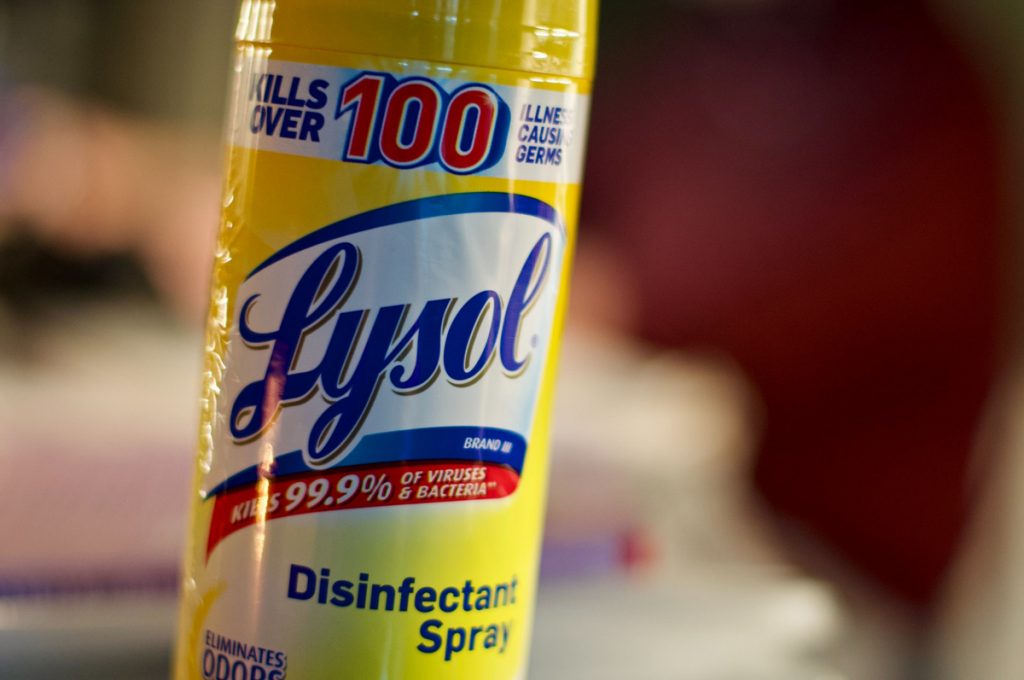Some of the things this pandemic has highlighted is the need for sterile environments and how dirty our electronics are. We don’t think about it so much, but our touchscreens and keyboards are practically petri dishes for some pretty vomit-inducing bacteria. No, literally: in 56 studies conducted in over 20 countries, over a third of the smartphones they put under the microscope contained E. Coli bacteria, along with fungi, Staphylococcus (the bacteria responsible for staph infection), and fecal matter. Yes, the chances of your smartphone having poop on it is surprisingly remarkably high.
But what about desktop PCs? Surely they’re sterile, right? Nope! In fact, studies have shown that your average PC has over 400 times more bacteria than a toilet seat. A toilet seat! And that’s just the average PC, we’re not even going to begin talking about the hundreds of thousands of basement-dwelling neckbeards who barely bathe themselves let alone give their rigs the love it deserves.
If this is all grossing you out, well, two things: one, it really definitely should and it should be part of your new normal, and two, there’s a solution to it, and it’s probably sitting in your mom’s cleaning supply closet. A humble can of Lysol spray can be more than enough to keep all your electronics spic and span, despite the sounds-misleading-but-is-actually-pretty-accurate description of Lysol.
Why Lysol Sprays are Effective on Electronics

We all know that the “Kills 99.9% of Germs” is a marketing line. Sure, it’s effective, but does Lysol kill “99.9%” of germs?
Turns out, it’s pretty damn close (the CDC and the WHO approved it for Covid prevention, after all), and it’s pretty darn effective on electronics.
Bacteria, viruses, and germs all thrive in moist, organic environments which, if you’re clever, you’ll know is the opposite of what electronics are. Because electronics are made of plastic and metal, viruses and bacteria won’t generally thrive on the surfaces, nooks, and crannies of your devices.
However, just because they’re not thriving doesn’t mean they’re not surviving, which is why every piece of electronics you own should get a good dose of Lysol spray every so often, just to ensure that it’s not harboring some potentially lethal pathogen heretofore unknown to scientists. Or, at the very least, just so it’s cleared of any stray fecal matter, an issue that is, unfortunately, a lot more common than we’d like to think.
How to Use Lysol Spray on Your Electronics
Of course, one shouldn’t be so cavalier when disinfecting one’s electronics, by which we mean, don’t just take a can of Lysol and spray the living bejesus out of your smartphone or something. You still have to be smart about it! Before disinfecting any type of electronics, always make sure that the device is turned off, unplugged, or has had its battery removed (if possible).
Smartphones

As one of the dirtiest electronics a person can own, it’s best to disinfect your smartphone as often as possible. Your first step will be to power off your phone and take it out of its casing if it has one. Then, use a Lysol spray to saturate a piece of tissue or a hand towel and meticulously wipe down the entire surface of the smartphone, front and back. It’s also a good idea to spray your phone case with Lysol as well, as a lot of germs can live on the underside of your phone.
Your tissue or towel should be saturated with Lysol spray, but not soaked. Make sure to get most nooks and crannies but don’t try to go in the ports. Once you’re done, give it a couple of minutes to make sure everything has dried out, then turn your phone back on. Repeat this as often as you’d like, especially if you’ve been outside. If you’ve been sheltering in place, heck, do it anyway, make it a part of your daily routine to stay productive while working from home.
Laptops

Probably the second dirtiest electronic people own, cleaning out a laptop with Lysol spray involves the same steps as cleaning a smartphone: power down your laptop, unplug it, remove the battery if possible, take a tissue or a towel and saturate it with Lysol, then wipe down as much of the surface as possible. If your laptop has removable keys, take these out too and give them a good wipe. Make sure you get the chassis in between the keys, as this is where the germs like to lurk.
It’s not advisable to open up your laptop if you don’t know what you’re doing, with that delicate procedure being left to professionals. If, however, you do know what you’re doing (and you’re seeing signs you’re your computer needs to be repaired), then try to wipe down as much surface area as possible without getting any of the delicate interiors too wet. Make sure there isn’t any Lysol spray residue left on the surface, give it a few minutes to dry off, and then turn it back on. You don’t have to clean your laptop as often as your smartphone, but if you go out often, make sure to wipe down the lid and the underside at least once a day.
Desktop PC

Most of the dirt that you’ll be cleaning off of your desktop PC is going to be just your regular, run-of-the-mill dust, unless of course, you like to eat food anywhere near your PC (hey, we’re not judging, we do it too). Again, power down your PC and make sure it’s unplugged from the wall socket. If you can, take off the side so you can have access to the interior. Again, take a tissue or a towel, saturate it with Lysol spray, and wipe down as much surface area as possible.
Do NOT spray the inside of your PC with Lysol, as this can ruin the display or finish of your PC and it’ll cost you to send it for repair. It might take a while, but you’ll have to make do with your Lysol-saturated tissue or towel. You don’t have to take out your motherboard or your GPU, but it’s not a bad idea to wipe the inside of the chassis at least.
Keep Your Electronic Devices Clean
If there’s anything that the pandemic has reminded us is that the world is dirty AF. To give you an idea of just how gross everything is, the amount of handwashing and face-mask wearing we as a collective society practiced in 2020 reduced the number of regular Flu cases in the United States from around 8,000 to just around 150 people. That’s a whopping 98% decrease in infections, effectively halting Flu season. The reason? The coronavirus terrified us into practicing what-should-be basic hygiene.
Our electronic devices, especially handheld devices, are a constant part of our every day and exposed to bacteria, germs, and airborne viruses. If regularly cleaning them wasn’t part of your routine, it’s time to give them some TLC. You can use Lysol spray or any other brands on the market that are safe for electronic devices.





